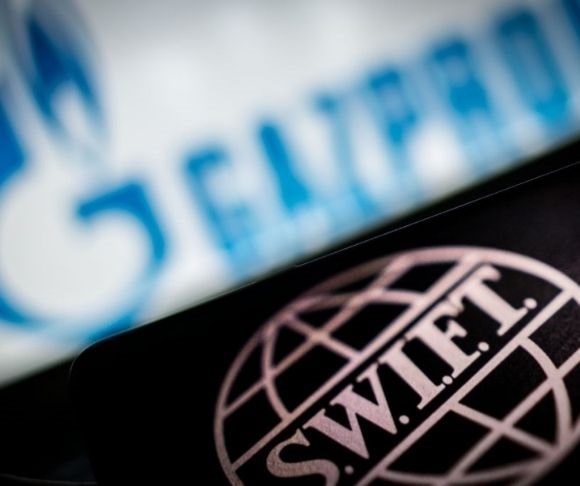The United States and several other nations blocked Russia’s access to the Society of Worldwide Interbank Financial Telecommunication (SWIFT), a banking communications platform used by financial institutions in more than 200 countries. The measure was considered a tremendous blow to Moscow because this enormous infrastructure facilitates millions of daily cross-border money transfers. It is estimated that 300 Russian banks and organizations use SWIFT. Could this move, in addition to several other public policy prescriptions, be the death blow to the Kremlin following its invasion of Ukraine – or will it run afoul of the law of unintended consequences?
‘Unintended Consequences’
Jamie Dimon, the CEO of JPMorgan Chase, told Bloomberg TV that the decision to restrict Russia from using SWIFT might not be as harsh as some believe. The head of the world’s largest financial institution noted that “there are a lot of workarounds for SWIFT, so there are different tools we use for different reasons.” He dismissed the efficacy of SWIFT, calling the 49-year-old messaging service nothing more than a relic from a bygone era that can easily be bypassed with an email that contains payment instructions.

(Photo illustration by Andrea Ronchini/NurPhoto via Getty Images)
Dimon made another compelling point about the SWIFT sanction: Be aware of “unintended consequences” in the fallout of sanctions and the aftermath of the Ukraine-Russia military conflict. JPMorgan Chase had been one of several Wall Street entities to recommend the White House to refrain from removing Russia from SWIFT, insisting that it could undermine the purpose of financial repercussions being imposed by Western countries.
Goldman Sachs presented a similar argument, writing that the ubiquity of the dollar in global financial markets enables the United States to achieve specific foreign policy objectives. “However, overuse of these powers could compel other actors to try to replace Dollar transactions, as Russia already did to some extent following earlier sanctions,” the Wall Street behemoth stated.
Others contend that adversarial states could one day turn the tables on the U.S. or other western nations and prohibit them from partaking in something like SWIFT. But this well-known acronym might no longer be the threat that it might have been in 2014 when President Vladimir Putin annexed Crimea. Indeed, Russia has diversified away from the greenback and has explored alternative avenues over the years. What the Kremlin and the central bank have done could initiate more long-term frustration for North America and Western Europe for many years to come.
The De-Dollarization Agenda
Liberty Nation has regularly reported on the de-dollarization campaign by several nations worldwide, including Russia, China, and Iran. This is an initiative that involves no longer relying on the dollar to settle cross-border transactions, allowing these countries to skirt targeted sanctions and essentially providing them carte blanche to do whatever they want without enduring enormous economic pain.
After eight years of living under sanctions and restrictions, Moscow invested heavily in avoiding the dependence on the buck. One notable step that Moscow took was the creation of SPFS, a payments system that would replace SWIFT. This would allow the nation to maintain global payments and “fulfill their obligations,” Central Bank of Russia Governor Elvira Nabiullina confirmed at a news conference on Feb. 28. Because only two-dozen foreign banks are connected to SPFS, compared to the more than 11,000 institutions in SWIFT, it would still be challenging for Russia to meet all its transactions.
Still, despite its minuscule impact, SPFS could lead to other members or alternatives. India, for example, is mulling an alternative payment route. China has already manufactured the Cross Border Interbank Payment System (CIPS) to expand the prevalence of the digital yuan. Last year, CIPS processed $12.68 trillion worth of transactions, up 75% from 2020, thanks to the growing number of users, including 30 Japanese banks, 23 Russian entities, and 31 financial institutions from Africa, due to the Belt and Road Initiative (BRI).
 Meanwhile, the years-long journey to quit the dollar has diminished the fierce bombardment of sanctions. Today, fewer than one-fifth of the central bank’s forex reserves represent the dollar, down from 40% in 2018. Moscow has instead increased its holdings of gold, the yuan, oil, and even cryptocurrencies. Suffice it to say, kicking the dollar to the curb had been a long-term strategy for Putin and his administration.
Meanwhile, the years-long journey to quit the dollar has diminished the fierce bombardment of sanctions. Today, fewer than one-fifth of the central bank’s forex reserves represent the dollar, down from 40% in 2018. Moscow has instead increased its holdings of gold, the yuan, oil, and even cryptocurrencies. Suffice it to say, kicking the dollar to the curb had been a long-term strategy for Putin and his administration.
In 2019, Dmitry Dolgin, the ING Chief Economist for Russia, noted that the de-dollarization blitzkrieg had become noticeable in a broad array of areas, such as foreign debt, local foreign exchange market turnover, and trade flows. Russia settled many of its exports in euros and the yuan, while port commerce had to be officially in rubles.
“De-dollarization is favored by the banks, while the rest, including companies, households and even the government, are holding on to their US dollars which are more attractive relative to euro thanks to higher interest rates,” Dolgin said in the report, noting that this could be an added cost to Russian trade since fewer market participants would want to use the ruble.
A Plan for Rogue Nations?
Should Russia somehow survive the onslaught of sanctions, penalties, and restrictions during its invasion of Ukraine, it could influence more countries to launch or expand their respective de-dollarization plots. Clearly, based on International Monetary Fund (IMF) data, the U.S. dollar hegemony is diminishing as more currencies, especially the euro, yuan, and pound sterling, make their presence known in global forex reserves. The international community has been walking on eggshells for far too long out of fear of reprisal from the boot of Uncle Sam. But will Washington allow nations – friend and foe – to reduce their reliance on the dollar, or will the world’s largest economy strike with a vengeance?
~ Read more from Andrew Moran.




